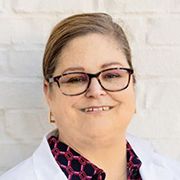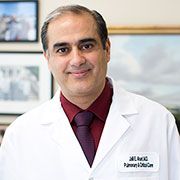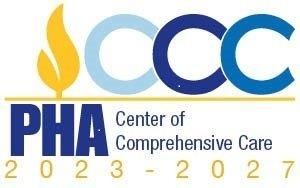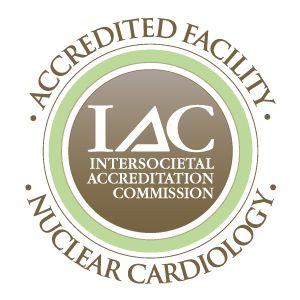Cardiology

Services We Offer and Conditions We Treat:
We offer the latest innovations in cardiac care and clinical therapies for patients who have a wide range of heart and blood vessel conditions – including heart valve abnormalities, coronary artery disease, heart rhythm problems, heart failure, and lipid disorders.
We offer state-of-the art testing to aid in accurate diagnosis and individualized treatment options, which include lifestyle modification, drug therapies and catheter-based interventions.
GW Heart & Vascular Institute
The mission of the GW Heart & Vascular Institute is to promote cardiac and vascular research, education, and community service with the goal of accelerating the pace of scientific discovery, reducing mortality and improving the quality of life of Americans with heart and vascular disease.
To achieve these goals, the GW Heart & Vascular Institute seeks to provide an interdisciplinary structure to integrate basic and clinical investigators, clinicians, medical educators, health policy experts and community leaders.
The Institute’s goal is to be the leading center for heart and vascular research, education and community service – and to do so by leveraging the enormous resources of The George Washington University.
Women's Heart Center
Heart disease is the leading cause of death in American Women. It kills more than one in three. Twice as many women die from heart disease as from all forms of cancer combined. Yet, only one woman in every eight understands that heart disease poses the greatest health threat to women. That’s why Women With Heart exists – to help educate, support and inspire women. Women With Heart is a collaboration between The GW Medical Faculty Associates and the GW Heart & Vascular Institute.
- Echocardiography
-
Echocardiography Clinic provides techniques and technology to view images of the heart, such as Echocardiography, Stress Echocardiography, and Transesophageal Echocardiography.
- Nuclear Cardiology
-
Safe, Noninvasive Heart Imaging
Cardiac nuclear stress testing is a standard noninvasive procedure for determining the diagnosis, extent and prognosis of coronary artery disease. These tests, however, are often limited by high radiation exposure and multiple artifacts. The MFA’s cardiac nuclear laboratory has the only facility in Washington, DC that uses UltraSPECT, a new technique that minimizes both of these concerns. UltraSPECT is a new analytic tool added to our nuclear scanning system that enhances image quality, allowing studies to be performed either with half the standard isotope dose or with a standard dose at half the usual scan time. After validating study quality, our lab now uses UltraSPECT in over 80% of cases.
GW UltraSPECT rest/stress Tc-99m SPECT protocol - 5 mSv
Standard rest/stress Tc-99m SPECT protocol - 10 mSv
Standard rest/stress Dual Isotope (Thallium/Sestamibi) protocol - 24 mSv
Diagnostic cardiac catheterization (average exposure) - 7 mSv
Radiation Exposure in Cardiac Testing
The MFA's Cardiac Nuclear Laboratory is under the supervision of Brian Choi, MD, Co- Director of Advanced Cardiac Imaging and Esma Akin, MD, Director of Nuclear Medicine. Dr. Choi is an Assistant Professor of Medicine (Cardiology) who trained at the Mount Sinai Hospital in New York. He is board-certified in cardiovascular disease and nuclear cardiology. Dr. Akin is an Associate Professor of Radiology who is an internationally regarded clinician and researcher in nuclear cardiology imaging techniques.
ALL MFA CARDIAC NUCLEAR STUDIES ARE READ JOINTLY BY CARDIOLOGY AND NUCLEAR RADIOLOGY.
Individualized Patient Testing:
Our staff reviews each patient to determine the best and safest nuclear test approach. Factors considered include patient age, gender, body habitus, history of radiation exposure and radiation risks, comfort with imaging under the camera, ability to exercise, and other potential scan artifacts. Particular advantages of UltraSPECT imaging include:
- Patients needing low radiation exposure: UltraSPECT lowers radiation dose by 50% for patients, especially for those who are younger or those who have had multiple nuclear tests or other radiation exposure.
- Patients claustrophobic or uncomfortable on the nuclear table: UltraSPECT reduces scan time from 12 to 6 minutes, thereby allowing the study to be complete without motion artifact.
- Obese patients or those women likely to have breast attenuation artifact: UltraSPECT enhances perfusion images.
In addition to treadmill and pharmacologic nuclear stress testing, the GW MFA Nuclear Laboratory also provides nuclear ventricular function testing (MUGA) and myocardial viability assessment. Our physicians are always available for test review or consultation at (202) 741-2323.
Non-Invasive Cardiac Testing
The GW Medical Faculty Associates offers a full range of non-invasive tests for diagnosis of cardiac diseases including echocardiography, stress testing, vascular ultrasound, ambulatory electrocardiography, and nuclear cardiac testing. The MFA noninvasive cardiac imaging specialists work in integrated teams with cardiologists, nuclear radiologists, vascular surgeons, certified technologists and technicians to provide patients in-depth, high-quality diagnostic evaluations for heart and vascular problems.
Advantages of Non-Invasive Cardiac Testing at The MFA
- Fully accredited non-invasive laboratory for Cardiac Nuclear, Echocardiography, and Vascular Ultrasound testing
- Multidisciplinary quality control and test evaluation with laboratory oversight and joint test analysis by cardiologists, nuclear radiologists, and vascular surgeons
- Physician availability for prompt test review or consultation at (202) 741-2323
- Individualized testing tailored to specific patient needs
- All testing utilizes a direct EMR interface which enables more accurate analysis and faster reporting
Stress Testing
- Stress echocardiography: Treadmill or pharmacologic
- Stress nuclear study: Treadmill or pharmacologic (UltraSPECT reduces radiation expo
Echocardiography
- 2D
- Doppler
- Color flow
- Speckle tracking
Vascular Ultrasound
- Carotid ultrasound
- ABI-resting and exercise
- Peripheral vascular ultrasound (lower & upper extremity)
- Abdominal aorta
- Venous ultrasound
Ambulatory Electrocardiography
- Holter monitoring
- Event monitoring
- Long term (30 day) monitoring
Nuclear Stress Testing
- MUGA testing
- Myocardial viability
- Treadmill or pharmacologic stress with UltraSPECT imaging
- Heart Rhythm Disorders
-
Movies spend a lot of time talking about hearts: hearts pounding in a suspenseful drama, hearts skipping in romances when people meet the love of their lives, and the heart-stopping excitement of an action-adventure. But in real life, we count on our hearts to be steady, beating between 60 to 100 times a minute, every minute of our lives. When that rhythm is disrupted, it’s time to turn to a team that knows how to help—our specialized cardiac electrophysiologists at The Heart Rhythm Center at The George Washington University Medical Faculty Associates.
Cure Your Rhythm. Free Your Mind.
We offer a patient-centered academic approach to clinical care, combining the resources of an advanced laboratory with the experience of our committed team of specialists. Our physicians serve on committees for the American Heart Association, American College of Cardiology and the Heart Rhythm Society, and our patients may be able to participate in cutting-edge clinical trials which open the possibilities of tomorrow’s health care advancements to today’s patients.
We also understand that arrhythmia affects much more than your heart. There is worry and even fear when your heart rhythm is unpredictable. Our patients have told us how, before treatment, they were afraid to travel in case of a rhythm disturbance, or how they put off exercise hoping it would help them avoid arrhythmia’s effects. When their cardiac quality improved, so did their quality of life, as they regained the confidence to take action. That’s why, at the Heart Rhythm Center, we believe in treatment and in transformation:
What is an Arrhythmia?
An arrhythmia is often called an abnormal heartbeat, and it means your heart can be beating too fast, too slow, or in an irregular rhythm. Arrhythmias can range from harmless flutters that cause no or little symptoms, to much more serious types of arrhythmias that can cause the heart to pump too little blood, potentially causing the heart to stop, resulting in fainting and/or sudden cardiac death.
Arrhythmias have many potential causes, including:
- Congenital heart defects
- Emotional stress
- Heart attacks
- Use of some drugs or heavy alcohol
- Use of some over-the-counter or prescription medicines
- Using too much caffeine.
ARRHYTHMIAS CAN AFFECT PEOPLE OF ALL AGES, THOUGH OLDER ADULTS ARE MORE AT RISK.
Atrial Fibrillation
The most common type of serious arrhythmia is atrial fibrillation, or AF. The American Heart Association estimates 2.7 million Americans live with AF, and experience the very fast and irregular contracting of the heart’s two upper chambers, which are the atria. When this happens, the atria can’t pump blood into lower chambers as they usually do. Some patients describe feeling a fluttering in their chest, a rapid heartbeat, dizziness, faintness or chest pain.
AF may occur infrequently, or it may be continuous, and its most serious potential complications are stroke and heart failure. Atrial fibrillation is most common in patients who are at least 50 years old, or those with other kinds of heart disease. Other types of heart arrhythmias can make the heart go too fast or too slow. These include: atrial arrhythmias, ventricular arrhythmias, and heart block. Heart block is when the electrical signal does not pass through the heart. With proper treatment, most arrhythmias can be managed so that a patient can live a normal life.
- Pulmonary Hypertension Center of Excellence
-
Pulmonary Hypertension Services in Washington, DC
Please call 202-795-2792 to make an appointment directly with the Pulmonary Hypertension Center of Excellence
Pulmonary (lung) hypertension (PH) is a type of high blood pressure that affects the tubes that carry oxygen (arteries) in your lungs and weakens the right side of your heart. Eventually the heart fails to work properly (heart failure).
The team at the GW Pulmonary Hypertension Center of Excellence provides state-of-the-art treatments for this uncommon, but potentially fatal condition. Our doctors provide the most advanced care available, based on more than 15 years of experience with PH.
The team includes internationally recognized cardiologists who are experts in PH, pulmonologists recognized as experts in PH related to pulmonary conditions, and rheumatologists who are experts in associated PH conditions, as well as specially trained nurses who provide assistance and support to families. We take a multidisciplinary comprehensive approach to treatment, with expertise not only in PH but also multi-modality cardiac imaging and cardiac prevention, and heart rhythm diagnoses and treatments.
Your Care Team

Dr. Mardi Gomberg-Maitland
Director, Pulmonary Hypertension Center of ExcellenceMardi Gomberg-Maitland, MD, MSc is an internationally recognized leader in the field of pulmonary hypertension. She has participated in over 45 clinical trials and has over 120 publications and 10 book chapters.

Dr. Karen Fagan
Pulmonary Hypertension Center of Excellence, GW MFA Chair of MedicineKaren A. Fagan, MD, serves as the Chair of the GW Department of Medicine. In this role, Fagan provides leadership to the department’s 12 divisions, 579 faculty members including 119 full-time faculty, internal medicine residency program, and 12 accredited fellowships. An internationally recognized authority on pulmonary hypertension and leading clinical trialist, Fagan has extensive experience in developing strong translational research programs between the clinical division and basic sciences departments.

Dr. Jalil Ahari
Associate Director, Pulmonary Hypertension Center of ExcellenceJalil Ahari, MD, is a well-respected clinical educator in charge of the Pulmonary and Critical Care Fellowship program and is a leader within the department of medicine. His clinical interests include the management of pulmonary thromboemboli.
Symptoms of Pulmonary Hypertension
The signs and symptoms of PH in its early stages might not be noticeable for months or even years. As the disease progresses, symptoms become worse. Oftentimes when patients are first diagnosed, their symptoms are severe.
Symptoms of PH include:
- Shortness of breath (dyspnea), initially while exercising and eventually while at rest
- Fatigue
- Dizziness or fainting spells (syncope)
- Chest pressure or pain
- Swelling (edema) in the ankles, legs and eventually in the abdomen (ascites)
- Bluish color to lips and skin (cyanosis)
- Racing pulse or heart palpitations
Classifications of Pulmonary Hypertension
PH is classified into five groups, depending on the cause:
- Group 1: Pulmonary arterial hypertension (PAH), cause unknown, known as idiopathic pulmonary arterial hypertension
- Group 2: PH caused by left-sided heart disease
- Group 3: PH caused by lung disease
- Group 4: PH caused by chronic blood clots (blood blockages)
- Group 5: PH associated with other conditions that have unclear reasons why the pulmonary hypertension occurs
Diagnosis
Your doctor may suspect that you have PH based on noninvasive tests, such as an electrocardiogram or echocardiogram. Because an accurate diagnosis is critical to your care, you may need additional tests to rule out other possible heart problems. Our team recommends several tests, including a cardiac catheterization. This enables doctors to diagnose PH and determine the best treatment plan, tailored specifically for each patient.
Other tests available to help detect PH include:
- Blood tests that help determine the cause of the disease and track the disease and its response to treatments
- Testing oxygen levels at rest and while walking
- Exercise tests to determine your ability and endurance
- Magnetic resonance imaging (MRI), which can be valuable in checking for any unusual heart conditions and carefully evaluating the right side of the heart
- Perfusion lung scans, to check for blood clots that may contribute to PH
- Pulmonary function tests, which measure airflow in and out of your lungs
- Sleeping tests to determine your ability to breathe and level of oxygen
- Computed tomography (CT) pictures of the lung and pulmonary angiograms, pictures of lung blood vessels (tubes)
Treatments
Treatment options are dependent on the cause of your PH. Our doctors have led the development of new medications and have done research on the difference in patients who get the disease. Although the treatment plans are often complex and are given out by specialty drug suppliers, our doctors and nurses have experience using these potentially lifesaving therapies and monitoring patients' progress during follow-up.
Treatment for Group 1 PAH
This includes a variety of oral and inhaled medicines, as well as an IV pump that delivers medication directly into the bloodstream. Some of these treatments include diuretics, anticoagulants (blood thinners), digoxin and oxygen.
If medications don't control your pulmonary hypertension, then open-heart surgery might be an option. In an atrial septostomy, a surgeon will create an opening between the upper left and right chambers of your heart (atria) to relieve the pressure on the right side of your heart.
In some cases, a lung or heart-lung transplant might be an option, especially for younger people who have idiopathic pulmonary arterial hypertension.
Treatment for Group 2 PH
The focus for treating PH caused by left-sided heart disease is treating the failing heart and its symptoms. A treatment that reverses the high pressure in the lungs is in clinical development.
Treatment for Group 3 PH
Treatments for PH from lung disease are dependent on the cause of the lung disease. Research is ongoing with drugs to lower the pressure.
Treatment for Group 4 PH
Treatments for PH caused by chronic blood clots include medications, oxygen, riociguat, and procedures to open the tubes and clear the clot (balloon opening, or angioplasty). In some patients, surgery is performed to clear the blockages.
Treatment for Group 5 PH
Sarcoidosis, a disorder that affects multiple organs in the body, but mostly the lungs, can be treated. Clinical research is ongoing with different approved therapies for high pressure in the blood vessels (PAH).
Our patients also have the opportunity to access the most promising therapies through clinical trials for PAH, PH from left heart disease, PH from lung disease, and PH from blood clots.
Listen Now
Podcast: Building the GW Hospital Pulmonary Hypertension Program featuring Dr. Mardi Gomberg-Maitland, Professor of Medicine and Director of the GW Pulmonary Hypertension Center of Excellence
Read an interview regarding the Hypertension Program with Dr. Gomberg-Maitland.
News & Information
Congratulations to Andrew Choi, MD, on his award recognizing his leadership for the American College of Cardiology Mid-Atlantic Capital Cardiology Symposium.
During American Heart Month this February, we are reminded about the importance of taking care of our heart health. This reminder is perhaps even more important this year as we approach a year of living during the COVID-19 pandemic.






